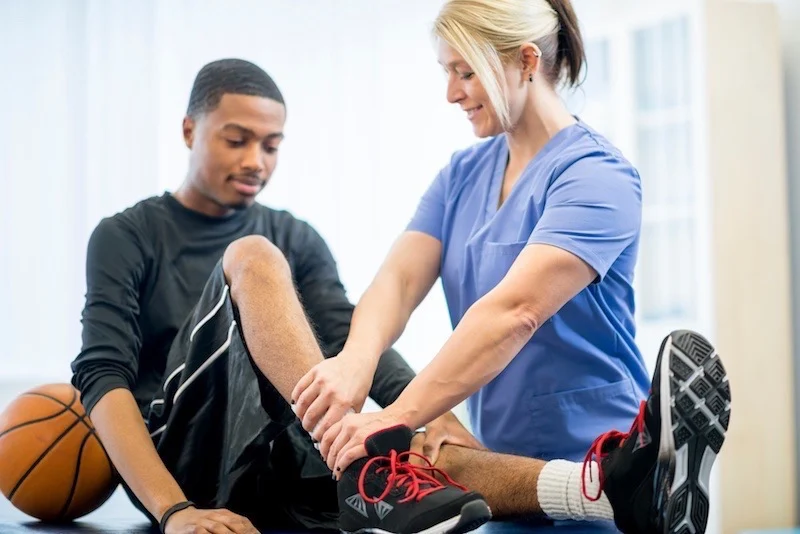For athletes and active individuals, a sports injury can feel like a major setback, but with the right care, it doesn’t have to keep you sidelined for long. An orthopedic specialist plays a valuable role in diagnosing, treating, and guiding recovery from sports-related injuries. Let’s explore how orthopedic physicians help you manage sports injuries.
Diagnosis
The diagnostic process begins with a comprehensive evaluation of the injury and the athlete’s medical history. An orthopedic specialist examines the mechanism of injury, the timing of symptoms, and the specific sport or activity involved. This information helps determine the most likely diagnosis and guides the selection of appropriate diagnostic tests.
Physical examination forms the foundation of sports injury diagnosis. The bone and joint specialist assesses the range of motion, stability, strength, and functional movement patterns. Specific orthopedic tests target the injured area to identify damaged structures and evaluate the severity of the injury. These tests often reproduce the athlete’s symptoms in a controlled manner to pinpoint the exact location and nature of the problem. Advanced imaging techniques provide detailed visualization of injured tissues. Laboratory tests may be ordered when systemic conditions or infections are suspected.
Treatment Plan
Treatment planning involves multiple factors specific to the athlete’s situation. The orthopedic specialist evaluates the type and severity of injury. They also take into account the athlete’s sport and position, competitive schedule, and long-term athletic objectives. This comprehensive assessment guides the development of an individualized treatment strategy.
Non-surgical treatment options are often the first line of management for many sports injuries. Rest, ice, compression, and elevation form the initial treatment protocol for acute injuries. Anti-inflammatory medications help control pain and swelling during the early stages of healing. Physical therapy often begins once the acute symptoms subside. Surgical intervention becomes necessary when conservative treatment fails or when the injury is severe enough to require immediate repair.
Preventive Care
Prevention strategies form a fundamental component of sports injury management. The orthopedic doctor evaluates risk factors that predispose athletes to injury and develops targeted prevention programs. Biomechanical analysis identifies movement patterns that increase injury risk and guides corrective interventions.
Strength and conditioning programs address muscle imbalances and improve overall physical preparation. Core stability exercises may be recommended to enhance spinal alignment and reduce the risk of injuries. Flexibility and mobility training maintain optimal range of motion and prevent overuse injuries. Sport-specific training helps athletes develop proper technique and movement patterns. Education plays a key role in injury prevention. Athletes learn to recognize early warning signs of injury and the value of proper warm-up and cool-down routines.
Team-Based Approach
Sports injury management requires coordination among multiple healthcare professionals. The orthopedic specialist serves as the primary coordinator, working closely with physical therapists, athletic trainers, and other specialists to optimize outcomes. This collaborative approach addresses all aspects of the athlete’s care and recovery.
Physical therapists play a central role in rehabilitation, implementing exercise programs designed to restore function and prevent re-injury. They work closely with the orthopedic doctor to modify treatment plans based on the athlete’s progress and response to therapy. Regular communication between team members helps support consistent care and appropriate progression of activities.
Nutritionists and sports psychologists may be included in the team when their expertise is needed. Nutritional support optimizes healing and performance, while psychological counseling helps athletes cope with the mental challenges of injury and recovery. The orthopedic specialist coordinates these services to provide comprehensive care.
Consult with an Orthopedic Specialist Today
Sports injury management requires specialized knowledge that addresses immediate treatment needs and long-term athletic goals. Orthopedic specialists bring expertise in diagnosis, treatment planning, and preventive care that can make the difference between recovery and chronic problems. If you’re dealing with a sports injury or want to learn more about injury prevention strategies, schedule a consultation with an orthopedic specialist today.

